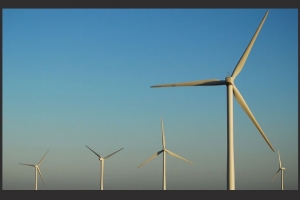
By Illinois Radio Network
SPRINGFIELD – Illinois lawmakers could enact new legislation this spring that would put the state on a path to using 100 percent renewable energy by 2050, but just what the Clean Energy Jobs Act would mean for the state’s ratepayers remains unclear.
CEJA is awaiting consideration by the Illinois House of Representatives. Another version has been introduced in the state Senate. Both bills could be called this spring.
The bill is a series of incentives and punishments that would shift the state’s energy portfolio – and a portion of its workforce – away from fossil fuels to renewable energy.
Illinois has a requirement in place to be at least 25 percent representatively powered by renewable energy or renewable energy credits by 2025. Should the Clean Energy Jobs act be enacted, something Gov. J.B. Pritzker has said supports, the new standard would be 100 percent renewable energy by 2050.
It would provide job incentives for workers to enter into the renewable power sector, provide incentives like 90 percent cost rebates for residents to buy and install infrastructure to support electric vehicles, and other initiatives all meant to shift the state’s energy use toward renewable sources.
“CUB supports the measure because it would boost energy efficiency, take advantage of the falling cost of wind and solar power, and implement electricity market reforms to protect Illinois consumers from higher energy costs,” the Citizens Utility Board said in an informational post on its website. “It is the only energy legislation in Springfield that could actually secure savings for consumers while significantly ramping up renewable energy development in the state.”
CUB and others support the bill. They say it will lead to savings for ratepayers, especially after the Federal Energy Regulatory Commission, or FERC, had proposed to change the wholesale energy market in a way CUB said would increase energy costs to the benefit of coal-fired power companies.
“The FERC ruling revamps electricity market rules to force northern Illinois customers to pay more to prop up dirty gas and coal plants we don’t need,” CUB said.
Not everyone is on board.
“This bill includes a new massive subsidy for Exelon’s currently unsubsidized nuclear power plants,” said Todd Maisch, president of the Illinois Chamber of Commerce. “[The Future Energy Jobs Act] clearly distorted the marketplace, CEJA will clearly distort those marketplaces even further.”
The chamber’s stance is that CEJA is an unvetted bill and the promises of savings are not guaranteed. They would like to see its changes better vetted or include some sort of business savings for high-power users like hospitals, manufacturers, and large companies.
“You’re saddling those employers of blue-collar employees with higher costs,” Maisch said. “It needs to be balanced against some pro-consumer, pro-ratepayer provisions.”
Illinois Radio Network can be reached at [email protected].






